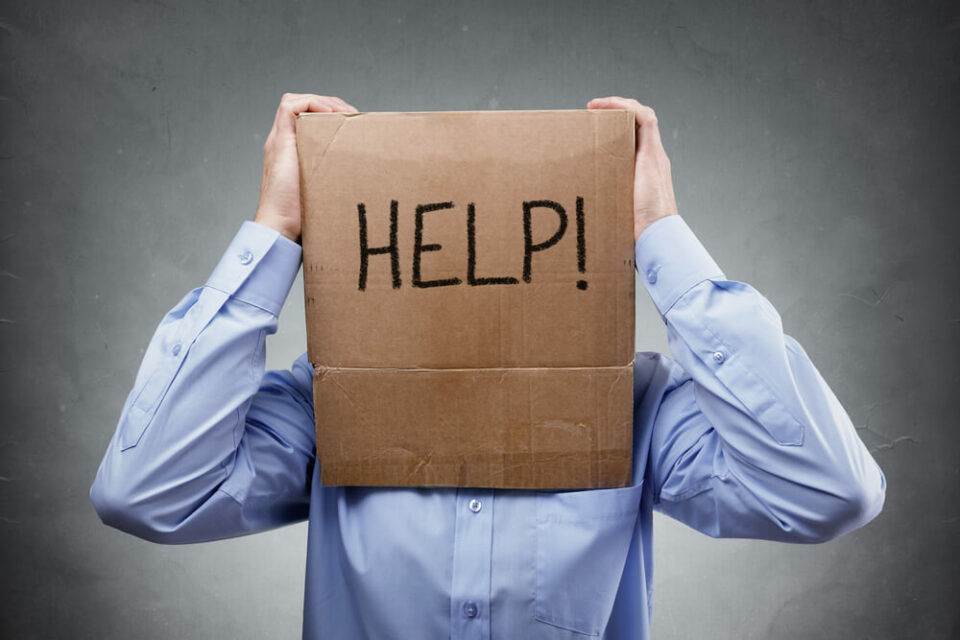The Psychological Impact of Opioid Addiction

Opioids, prescription medications used primarily for pain relief, lead to a condition that impacts many worldwide, that is opioid addiction when used uncontrollably. This dependence not only involves physical health but also significantly influences the mental and emotional well-being of those caught in its cycle.
The difference from its initial use to dependency is packed with changes not only in one’s body but also in the mind, altering perceptions, emotions, and behaviors in profound and unrecognizable ways.
Understanding the psychological downsides of opioid addiction is important in order to identify effective treatment strategies, such as counseling, that address the whole person, not just the withdrawal symptoms.
What is Opioid Addiction?
Opioids, once seen as problem solvers for pain, have revealed their double-edged nature, offering relief and risk in equal measure. Their ability to mimic endorphins in the brain, but with much stronger ability, leads to a deceptive sense of euphoria, masking pain and producing dependency.
This biochemical hijacking prompts the brain to demand more opioids to achieve the same level of relief, snatching individuals into a relentless cycle of need and seeking fulfillment.
The psychological fallout from this dependency is profound. Initially, opioids may seem to offer a quick solution, not just for physical pain but for emotional distress as well. Yet, as dependence deepens, it crumbles the very foundation of mental health, leading to increased anxiety, depression, and a deep sense of isolation.
The Psychological Effects of Opioid Dependency
Chronic opioid use doesn’t just alter brain chemistry; it reshapes the perspective of the user’s emotional worldview. The initial euphoria vanishes into the background, giving way to a relentless search for a state that grows more deceitful. The stigma associated with addiction frequently exaggerates this, further isolating the person from potential sources of help and recovery. It can lead to:
- Risk of mental health disorders: Opioid addiction and mental health issues are directly connected, with each condition potentially increasing the other.
Isolation (Lone Wolf Effect): As the addiction consumes more of the individual’s life, it becomes a solitary journey, distancing them from friends and family. Activities once enjoyed are no longer engaging and joyful.

The impact of opioid addiction extends far beyond the individual, and it goes so far as to disrupt the victim’s basic surroundings as well, including workplaces and, most importantly, family life and relationships. This ripple effect can grow in numerous ways, challenging the stability, emotional well-being, resilience, and connection of those related to the person battling addiction.
The effect of addiction on families and relationships
Here’s an inside look at how opioid addiction affects loved ones:
- Stress: Family members often experience a wide range of emotions, including fear for their loved one, anxiety for their progress and well-being, as well as guilt and shame, as they believe they bear part of that responsibility. In extreme cases, the unpredictability of the addict’s behavior can lead to constant worry about their health and safety.
- Financial Instability: The cost of addiction is measured in lost wages, therapies, or the expense of medical treatments required. In exaggerated cases, it often involves legal fees, accumulated debt, and the loss of property. Families may find themselves with no savings or facing financial burdens as a result.
- Broken Trust: Addiction can lead to behaviors such as lying, stealing sneakily, or manipulation to get what one wants, severely damaging trust within the family. Rebuilding this trust is often one of the most challenging aspects of recovery, as the reputation has already been created.
- Social Stigma: Families often isolate themselves due to the stigma associated with addiction and the bad mark it leaves on them, reducing their support network. The shame felt can prevent families from seeking the knowledge and help they desperately need.
- Caregiver Fatigue: Loved ones who become caregivers by taking all responsibility as their own can experience exhaustion, resentment, and neglect of their own needs, leading to burnout and health issues for themselves.
Support from Loved Ones
A key role during the recovery process from opioid addiction that cannot be underestimated is the support of loved ones near the addict. It not only provides emotional support but also reinforces the efforts of loved ones to commit to this battle.
The complex nature of addiction means that the path to recovery is often fraught with thoughts of giving up; however, the presence of a strong, understanding support network that knows the nature of the addict can significantly ease this journey.

Loved ones can contribute to the recovery process in several ways, such as:
- Encouragement: Being a great listener and saying words of encouragement may seem common but on the other hand, it makes a great impact on your loved one who needs a shoulder to lean on. Simple gestures of understanding and empathy can go a long way.
- Practical Help: Practical support such as helping with daily tasks, giving them a ride to therapy sessions, or assisting with financial responsibilities can relieve some of the pressures and tasks that may burden your loved one.
- Safe Environments: Loved ones, by creating an environment that minimizes temptations and triggers, minimize the chances of the addict slipping into substance use again. This might involve removing every trigger and any substances that can be used from the home or avoiding social settings where substance use is present, such as clubs or bad influences.
- Healthy Habits: Participating in new hobbies, such as exercising together, and cooking a more nutritious diet, can help increase positive changes in their lives.
- Staying Informed: Gathering more information about the nature of addiction and the challenges that come with it allows loved ones to offer more effective support and understand the complexities of what the individual is going through.
- Seeking Support for Themselves: Counseling or support groups for families of addicts should not be underestimated, as everyone shares their story, creating a sense of comfort for everyone involved.
The Role of Therapy in Recovery
Besides the physical aspects, opioid addiction also features psychological symptoms that need to be treated. Depending on an individual’s needs, some therapeutic methods that can heal these include cognitive Behavioral Therapy (CBT) and Dialectical Behavior Therapy (DBT).
CBT helps the person in need to identify and change negative thought patterns and behaviors that triggered their addiction. Besides that, it also teaches them practical skills to manage stressful situations and intense emotions without opioids. Through this method, patients increase their awareness of distorted perceptions and try to develop healthier coping mechanisms.
On the other hand, DBT focuses on regulating emotions by addressing some of the emotional vulnerabilities that may have led to the addiction in the first place.
Therapy is a safe space for individuals to explore and heal from the trauma that often underlies addiction. Many people turn to opioids as a way to escape from past hurts without addressing the root causes of their pain. Therapeutic interventions can uncover these issues and offer valuable strategies for healing and moving forward.
Group therapy and support groups also play an important role since they provide a sense of community and shared experience. This can be incredibly validating and encouraging for those in recovery.
Navigating Stigma and Fostering Empathy in Opioid Addiction

Combating the stigma surrounding opioid addiction is of utmost importance for encouraging individuals to seek help. Moreover, it helps fostering a more compassionate society.
This stigma, which is often rooted in misconceptions about addiction being a moral failing rather than a complex health issue, can deter people from getting treatment. To avoid this, they should get educated on how to dismantle these stereotypes by better understanding the biological, psychological, and environmental facets of addiction.
Another crucial element of this process is cultivating empathy. If we strive to understand the personal struggles of people who are fighting addiction, we will be able to offer support rather than judgment. Open dialogues on forums and in support groups can help everyone humanize the issue and encourage individuals and their families to share their stories and challenges openly.
And, of course, this fight wouldn’t be the same without healthcare professionals who carry this shift towards a stigma-free approach to addiction treatment. Training in compassionate care and the use of person-first language can significantly improve the treatment experience for those who need help. If we change the narrative around opioid addiction, society can move closer to removing barriers to recovery and healing.
Conclusion
It’s evident that there are obstacles on the way to recovering from opioid addiction, both physical and psychological. However, with a comprehensive treatment approach that addresses both aspects, recovery is within reach.
Innovations like ANR, combined with supportive psychological therapies, offer a beacon of hope for those struggling. It’s a journey of transformation from dependency to freedom, which requires courage, support, and the right treatment strategy.
For anyone struggling with opioid addiction—know that you’re not alone. Resources and help can guide you through this journey to recovery, so you should be aware that it’s never too late to seek help and reclaim your life from addiction.













